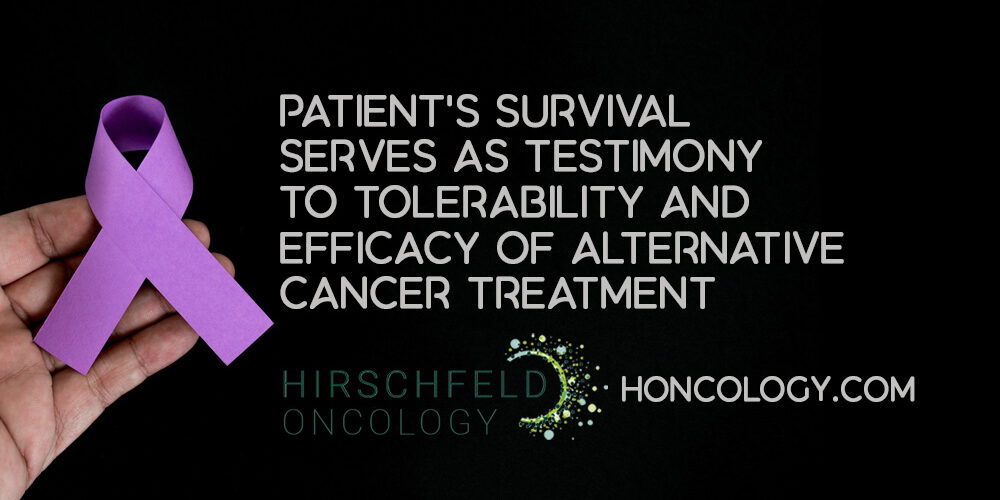Overview of Immunotherapy Progress in Gastrointestinal Cancers
Importance of Immunotherapy in GI Cancers
Immunotherapy has become a key treatment option for gastrointestinal (GI) cancers, which include stomach, colorectal, liver, esophageal, pancreatic, and biliary tract cancers. These cancers collectively contribute to a large portion of cancer-related deaths globally. Traditional treatments like chemotherapy and surgery often face limitations due to high recurrence rates and poor prognosis.
Current Landscape of Immunotherapy Approaches
Various immunotherapy modalities are actively used and developed for GI cancers. Immune checkpoint inhibitors (ICIs) targeting PD-1, PD-L1, CTLA-4, and LAG-3 have shown notable efficacy, especially in tumors with high microsatellite instability (MSI-H) or mismatch repair deficiency (dMMR). Approved agents such as pembrolizumab, nivolumab, and atezolizumab are now standard treatments, sometimes combined with chemotherapy or targeted therapies, improving survival outcomes.
Emerging therapies include adoptive T-cell treatments like CAR-T cells targeting claudin18.2 and GPC3, oncolytic viruses that lyse tumor cells and stimulate immune activation, and personalized cancer vaccines focusing on tumor neoantigens. Combination regimens continue to expand, seeking to overcome resistance and enhance efficacy.
Challenges in Treating GI Cancers with Immunotherapy
Despite progress, several challenges persist. Tumor heterogeneity and complex immunosuppressive tumor microenvironments hinder consistent responses. Identification of reliable predictive biomarkers remains essential to personalize treatment strategies effectively. Immune escape mechanisms, toxicity management, and the high economic cost of novel therapies also present obstacles. Research efforts aim to refine biomarker-driven patient selection, optimize combination therapies, and develop safer, more efficient immunotherapeutic agents for GI cancer patients.
The Role of Immune Checkpoint Inhibitors in GI Cancer Treatment
What immune checkpoint inhibitors are approved for gastrointestinal cancers and what is their significance?
Immune checkpoint inhibitors (ICIs) such as PD-1 inhibitors, PD-L1 inhibitors, CTLA-4 inhibitors, and LAG-3 inhibitors have transformed the therapeutic landscape of gastrointestinal (GI) cancers. Approved agents include nivolumab, pembrolizumab, and atezolizumab, which primarily work by blocking inhibitory signals that tumors use to evade immune detection. By targeting these checkpoints, ICIs reinvigorate T cells to identify and attack cancerous cells (Immunotherapy in gastrointestinal cancers).
Types of Approved Immune Checkpoint Inhibitors in GI Cancer
- PD-1 Inhibitors: Nivolumab and pembrolizumab are widely used for advanced gastric, esophageal, and colorectal cancers, particularly effective in tumors with microsatellite instability-high (MSI-H) or mismatch repair deficiency (dMMR).
- PD-L1 Inhibitors: Atezolizumab inhibits PD-L1 and is used in combination therapies, improving outcomes in hepatocellular carcinoma and other GI malignancies (Immunotherapy in gastrointestinal cancers).
- CTLA-4 and LAG-3 Inhibitors: These agents are emerging options often investigated in combination with PD-1/PD-L1 blockade to overcome resistance mechanisms (botensilimab).
Mechanisms of Action
- PD-1/PD-L1 Pathway: Tumor cells express PD-L1, which binds PD-1 receptors on T cells, suppressing immune response. ICIs block this interaction, restoring T cell activity (Cancer immunotherapy overview).
- CTLA-4 Inhibition: CTLA-4 competes with costimulatory receptors on T cells, downregulating activation. Inhibitors enhance T cell priming and proliferation (Next-Generation Immuno-Oncology in GI Cancers.
- LAG-3 Inhibition: LAG-3 regulates T cell exhaustion; blocking it can rejuvenate T cell function and enhance antitumor immunity (Next-Generation Immuno-Oncology in GI Cancers.
Efficacy in MSI-H/dMMR Tumors
Tumors exhibiting MSI-H or dMMR characteristics harbor high mutational burdens, generating abundant neoantigens. This renders them more immunogenic and responsive to ICIs. Clinical evidence shows improved overall survival and durable responses in these subsets, making MSI and dMMR status critical predictive biomarkers for immunotherapy selection in GI cancers (J Hematol Oncol.
Clinical Trial Highlights
- KEYNOTE Series: Trials such as KEYNOTE-059, KEYNOTE-062, and KEYNOTE-811 have demonstrated significant survival benefits from pembrolizumab alone or in combination with chemotherapy in gastric and gastroesophageal cancers, especially in PD-L1-positive or MSI-H tumors (J Hematol Oncol.
- CheckMate Series: CheckMate-649 showed that nivolumab combined with chemotherapy improved overall survival in advanced gastric, gastroesophageal junction, and esophageal adenocarcinomas. CheckMate-142 established nivolumab’s activity in MSI-H colorectal cancer (J Hematol Oncol.
These trials underpin the incorporation of ICIs into standard GI cancer treatment guidelines, affirming their role in improving patient outcomes with manageable toxicity.
| ICI Type | Approved Drugs | Targeted Pathway | Tumor Types with Notable Efficacy | Key Clinical Trials |
|---|---|---|---|---|
| PD-1 Inhibitors | Nivolumab, Pembrolizumab | PD-1 | Gastric, colorectal (MSI-H/dMMR), esophageal | KEYNOTE-059, CheckMate-649, CheckMate-142 |
| PD-L1 Inhibitors | Atezolizumab | PD-L1 | Hepatocellular carcinoma, gastric | IMbrave150, various GI trials |
| CTLA-4 Inhibitors | Under investigation (e.g., botensilimab) | CTLA-4 | Being studied in combination therapies | Early phase clinical trials |
| LAG-3 Inhibitors | Emerging agents | LAG-3 | Under clinical evaluation | Early phase clinical trials |
Combining Immunotherapy with Chemotherapy and Targeted Therapies
How do combination therapies involving immunotherapy enhance treatment outcomes in GI cancers?
Combining immunotherapy with chemotherapy and targeted therapies harnesses the strengths of each approach to improve patient outcomes in gastrointestinal (GI) cancers. Immune checkpoint inhibitors (ICIs) such as PD-1/PD-L1 inhibitors re-activate the immune system to attack tumor cells, but their effectiveness can be limited in certain tumor microenvironments. Chemotherapy and targeted agents help overcome these limitations by inducing tumor cell death and modifying the tumor environment to enhance immune recognition.
Clinical studies have demonstrated that combination regimens lead to improved overall survival (OS) and progression-free survival (PFS) compared to conventional therapies. For example, the FLOT chemotherapy regimen (docetaxel, oxaliplatin, 5-fluorouracil, leucovorin) combined with immunotherapy has been shown to benefit patients with advanced gastric cancer. Similarly, anti-HER2 agents like trastuzumab, when paired with pembrolizumab and chemotherapy (as in the Keynote-811 trial), have improved response rates and survival outcomes in HER2-positive gastric and gastroesophageal junction cancers.
These combination approaches have become updated standards of care for multiple GI cancers, including gastric, esophageal, colorectal, and hepatocellular carcinoma. In hepatocellular carcinoma, the combination of atezolizumab with bevacizumab has set a new treatment benchmark by extending survival beyond that of sorafenib alone. For colorectal cancers with high microsatellite instability (MSI-H, ICIs combined with chemotherapy improve efficacy, extending benefits to patients who previously faced limited options.
Overall, integrating immunotherapy with chemotherapy or targeted treatments addresses tumor immune evasion, enhances tumor antigen presentation, and modulates the tumor microenvironment to foster durable anti-tumor immune responses, paving the way for personalized and more effective GI cancer therapies.
Adoptive Cell Therapy: CAR-T and TCR Therapies Poised for Impact
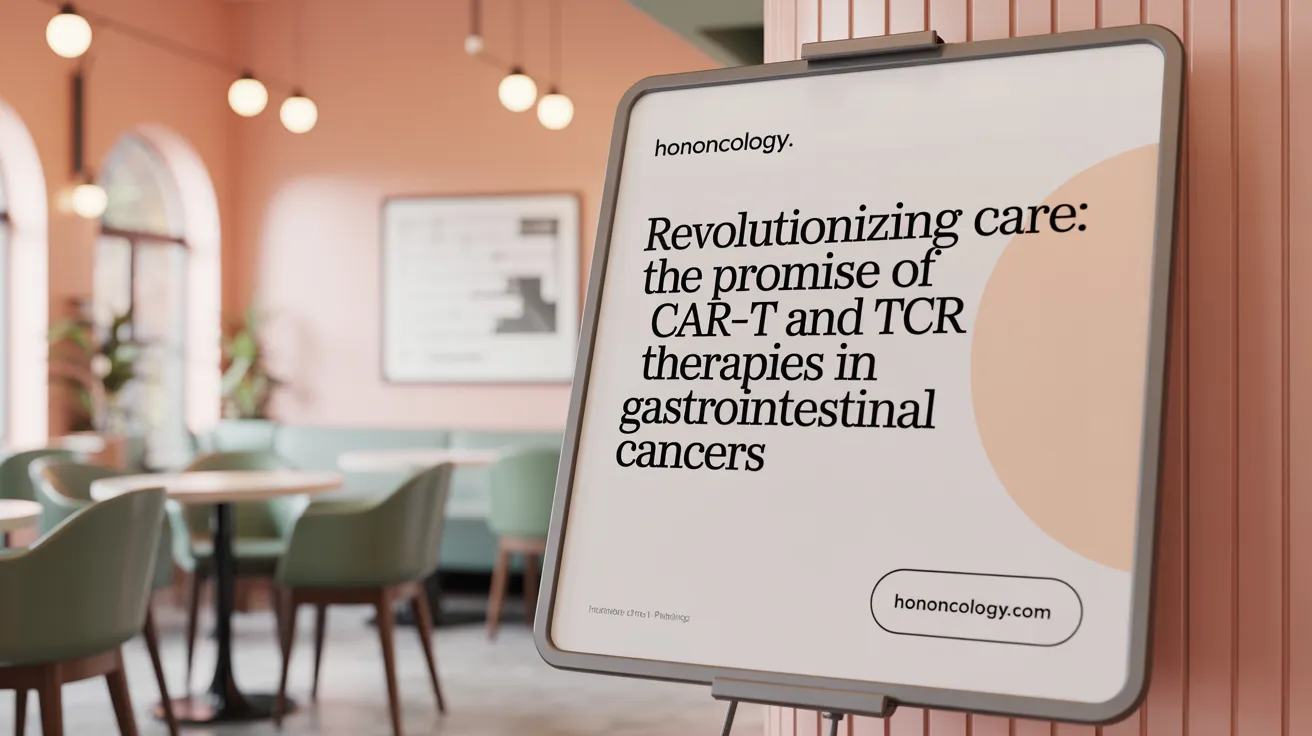
What are adoptive T-cell therapies and their role in GI cancers?
Adoptive T-cell therapies involve engineering patients' immune T cells to better recognize and attack cancer cells. This category primarily includes CAR-T therapy (chimeric antigen receptor T-cell) and TCR-T therapy (T-cell receptor) therapies. In gastrointestinal (GI) cancers, such therapies aim to target tumor-specific antigens to induce tumor regression and durable responses (source).
Which target antigens are most promising?
Two key antigens have emerged as promising targets in GI cancers:
- Claudin18.2 (CLDN18.2): A tight junction protein overexpressed in gastric and gastroesophageal cancers.
- GPC3 (Glypican-3): Frequently overexpressed in hepatocellular carcinoma.
These targets allow CAR-T and TCR-T therapies to selectively attack tumor cells while sparing normal tissues.
What clinical results have been observed?
Recent clinical trials of Claudin18.2-targeting CAR-T cells in advanced gastric and gastroesophageal junction cancers demonstrated an objective response rate of approximately 48.6%, indicating nearly half of patients experienced significant tumor shrinkage. Early studies of GPC3-targeted therapies in liver cancer also show encouraging responses (source.
What challenges affect these therapies?
Despite efficacy, challenges remain:
- On-target, off-tumor toxicity: Claudin18.2 is expressed at low levels in some normal tissues, raising risks of unintended immune attacks (source).
- Tumor microenvironment (TME): The immunosuppressive and fibrotic nature of GI tumor microenvironments can limit T cell infiltration and function (source, Cold tumor immune microenvironment).
- Safety and control: Managing adverse events and ensuring precise tumor targeting are critical (source).
What recent technological advances improve safety and efficacy?
The GA1CAR platform introduces a modular, switchable CAR-T design that uses a docking site on T cells receptive to external Fab fragments carrying tumor targeting specificity. This innovation enables:
- Rapid retargeting to different tumor antigens without creating new CAR-T cells.
- An "off" switch to halt therapy by removing targeting fragments, enhancing safety.
- Improved tumor penetration and control, addressing heterogeneity and toxicity.
Such adaptable CAR-T platforms represent a promising next step in overcoming current limitations in GI cancer adoptive cell therapies (source.
Oncolytic Viruses: Harnessing Viral Immunotherapy in GI Malignancies
What role do oncolytic viruses play in immunotherapy for gastrointestinal cancers?
Oncolytic viruses are a novel immunotherapy approach that selectively infect and kill cancer cells while sparing normal tissue. Their mechanism of action involves direct tumor cell lysis and the stimulation of systemic anti-tumor immune responses. By inducing tumor cell death, they release tumor antigens that help to activate the immune system against cancer.
Several oncolytic viruses have been studied in gastrointestinal (GI) cancers, with notable examples including H101 oncolytic virus, LOAd703 oncolytic virus, OH2 oncolytic virus, and pelareorep. These agents have been evaluated in clinical trials and shown manageable safety profiles with encouraging signs of efficacy. H101, a recombinant adenovirus, has demonstrated tumor-lysing capabilities, while LOAd703 and OH2 are designed to enhance immune activation within tumor tissues.
Clinical trials report these viruses primarily cause mild to moderate side effects, making them tolerable for patients. Importantly, oncolytic viruses have the unique ability to reshape the tumor microenvironment. They can convert immunologically 'cold tumor immune microenvironment'—which lack sufficient immune cell infiltration—into 'hot' tumors that are more responsive to immune checkpoint blockade and other immunotherapies.
This ability to overcome tumor immune evasion expands the therapeutic potential of immunotherapy in GI malignancies, particularly for tumors traditionally resistant to immune-based treatments. Current research continues to optimize these viruses and combine them with other therapies to further enhance patient outcomes. For more insights, see Oncolytic virus therapy in GI tumors and Oncolytic viruses in GI cancer treatment.
Cancer Vaccines: Personalized and Peptide-Based Therapies in Development
What is the status and promise of cancer vaccines in treating gastrointestinal cancers?
Cancer vaccines represent a promising emerging approach in the immunotherapy of gastrointestinal (GI) cancers. These vaccines primarily aim to enhance immune recognition and stimulate durable responses against tumor-specific antigens. Two main types of vaccines under investigation are personalized neoantigen vaccines and peptide-based vaccines targeting KRAS mutations in GI cancer.
Personalized neoantigen vaccines are designed based on unique mutations present in a patient's tumor, enabling the immune system to target these novel, tumor-specific markers accurately. Peptide vaccines, on the other hand, deliver specific tumor-associated peptides such as those arising from KRAS mutations or HER2 protein overexpression, both of which are implicated in various GI cancers.
This strategy boosts immune system activation by presenting antigens that are specifically expressed or mutated in the tumor cells, thereby improving T cell recognition and tumor targeting. Some promising antigens include the KRAS oncogene mutations frequently seen in colorectal cancers and HER2, a receptor overexpressed in subsets of gastric cancers.
Early clinical trials have showcased encouraging results, especially when cancer vaccines are combined with immune checkpoint inhibitors (ICIs) like PD-1/PD-L1 blockers. This combination potentially enhances response rates by both priming the immune system and overcoming tumor-induced immunosuppression.
Overall, cancer vaccines in GI cancers are progressing through clinical trials with preliminary evidence suggesting they can complement existing immunotherapies and offer a highly tailored therapeutic avenue. Continuous research aiming to optimize vaccine design and combination regimens holds the potential to revolutionize personalized treatment for gastrointestinal cancer patients.
Addressing Immunotherapy Resistance in Difficult GI Tumors

What are the main obstacles to successful immunotherapy in GI cancers and how are they being addressed?
Immunotherapy in gastrointestinal (GI) cancers faces significant challenges primarily due to tumor heterogeneity and various immune evasion mechanisms. Many GI tumors, particularly diffuse gastric cancer (DGC), exhibit what is called a 'Cold tumor immune microenvironment' with low immunogenicity. This is characterized by low infiltration of cytotoxic immune cells and high presence of immunosuppressive factors such as Cancer-associated fibroblasts (CAFs) and transforming growth factor-beta (TGF-β). These elements create physical and biochemical barriers that prevent immune cells from effectively attacking tumor cells.
Another obstacle is the loss or downregulation of immune checkpoint ligands like PD-L1 or defects in antigen presentation pathways, which tumors use to escape immune detection. Low Tumor Mutational Burden (TMB) and lack of neoantigens in certain GI tumors further reduce their recognition by the immune system.
To overcome these hurdles, researchers are leveraging biomarker development to better stratify patients likely to respond to immunotherapy. Biomarkers such as microsatellite instability-high (MSI-H), tumor mutational burden (TMB), PD-L1 expression, Epstein-Barr virus (EBV) status, and gut microbiome composition are crucial in this effort.
Therapeutic strategies include combining immune checkpoint inhibitors (ICIs) with chemotherapy or targeted agents to enhance efficacy. Blocking TGF-β signaling is a promising approach aimed at remodeling the tumor microenvironment to allow lymphocyte infiltration, effectively converting 'cold' tumors into 'hot' ones responsive to immunotherapy. Additionally, modulating the gut microbiome has shown potential to improve immune responses and overcome resistance.
In sum, addressing tumor microenvironment suppression, enhancing antigenicity, and integrating biomarker-driven combination therapies represent the forefront of overcoming immunotherapy resistance in GI cancers.
Biomarkers: Guiding Treatment and Predicting Immunotherapy Success
Which biomarkers are essential for predicting and personalizing immunotherapy in GI cancers?
Several biomarkers have become critical in predicting the effectiveness of immunotherapy for gastrointestinal (GI) cancers and customizing treatment plans.
MSI-H/dMMR status: Tumors with high microsatellite instability (MSI-H or deficient mismatch repair (dMMR display higher mutational loads and neoantigen diversity, making them more responsive to immune checkpoint inhibitors, especially PD-1/PD-L1 blockers.
PD-L1 expression (CPS): The combined positive score (CPS measures PD-L1 levels on tumor and immune cells. Higher CPS values often correlate with better responses to ICIs in gastric, esophageal, and some colorectal cancers.
Tumor Mutational Burden (TMB): Elevated TMB is linked to increased tumor immunogenicity and improved immunotherapy response.
Epstein-Barr Virus (EBV) status: EBV-positive gastric cancers exhibit immune-rich microenvironments, which enhance sensitivity to immunotherapies (source.
Circulating Tumor DNA (ctDNA): Liquid biopsy analyses of ctDNA provide minimally invasive means to detect tumor mutations, monitor treatment response, and predict survival outcomes (source).
Tumor Microenvironment (TME) composition: The density and types of immune cells, such as tumor-infiltrating lymphocytes and macrophages, along with cytokine profiles, influence therapeutic response (source.
Emerging markers include specific gene mutations (e.g., CDH1, RHOA), and gut microbiome signatures affecting immune responses (source).
Advanced technologies employing artificial intelligence (AI) and molecular profiling enable integration of diverse biomarker data, enhancing personalized immunotherapy strategies and patient selection (source.
In summary, biomarker-guided approaches form the backbone of predictive, individualized immunotherapy in GI cancers, with ongoing research into novel markers and AI tools promising further refinement.
Immunotherapy in Gastric Cancer: Progress and Subtype Challenges
How has immunotherapy advanced in gastric cancer and what are key challenges?
Immunotherapy has made significant strides in treating gastric cancer (GC), particularly through the use of immune checkpoint inhibitors (ICIs) like pembrolizumab and nivolumab. These agents disrupt tumor immune evasion, especially in tumors with high microsatellite instability (MSI-H) or mismatch repair deficiencies, leading to improved survival outcomes. ICIs have been approved for advanced gastric cancer and are increasingly combined with chemotherapy or targeted therapies to enhance efficacy.
What are the differences between diffuse and intestinal gastric cancer subtypes?
Gastric cancer includes distinct subtypes: intestinal gastric cancer (IGC) and diffuse gastric cancer (DGC). IGC generally shows a more immunogenic tumor microenvironment with higher infiltration of immune cells, making it more responsive to ICIs. In contrast, DGC is characterized by a 'cold tumor immune microenvironment' (TIME), with abundant cancer-associated fibroblasts (CAFs), lower immune cell infiltration, and reduced PD-L1 expression. This subtype also presents lower tumor mutational burden (TMB) and MSI-H prevalence, contributing to its resistance to immunotherapy.
How does tumor immune microenvironment complexity impact treatment?
The tumor microenvironment (TME) in gastric cancer is complex and heterogeneous. DGC's fibrous stroma and TGF-β signaling create a physical and immunosuppressive barrier that hampers immune cell infiltration and drug delivery. This complexity influences the efficacy of immunotherapies and necessitates strategies to modulate the TME to improve immune cell trafficking and response.
What combination therapies show promise in treating gastric cancer?
Combining ICIs with anti-HER2 targeted therapies, such as trastuzumab, has demonstrated synergistic effects, particularly in HER2-positive gastric cancers. Clinical trials like KEYNOTE-811 have shown improved objective response rates and survival outcomes with these combination regimens. Additionally, combining ICIs with chemotherapy or dual checkpoint inhibitors is actively explored to overcome resistance and enhance treatment benefits.
What are notable clinical trials advancing gastric cancer immunotherapy?
KEYNOTE-811 is a pivotal clinical trial that combined pembrolizumab with trastuzumab and chemotherapy in HER2-positive gastric cancer patients, showing significant improvements in response rates. Other trials like CheckMate-649 and ATTRACTION-4 evaluated nivolumab combined with chemotherapy, reinforcing the benefit of first-line immunotherapy combinations. Research continues to explore novel agents, adoptive cell therapies targeting Claudin18.2, and evolving biomarkers to tailor treatment.
Immunotherapy Breakthroughs in Colorectal and Hepatobiliary Cancers
What are the notable immunotherapy developments in colorectal, hepatocellular, and biliary tract cancers?
Immunotherapy has significantly advanced treatment options for colorectal, hepatocellular, and biliary tract cancers, especially for molecularly defined subgroups.
In colorectal cancer, tumors with high microsatellite instability (MSI-H) or deficient mismatch repair (dMMR) exhibit strong and durable responses to immune checkpoint inhibitors. Drugs like pembrolizumab and nivolumab, which target the PD-1 pathway, have shown marked efficacy in this subset. Clinical trial data demonstrate improved overall survival and progression-free survival, making these agents standard therapy for MSI-H/dMMR colorectal cancers.
For hepatocellular carcinoma (HCC), combination treatments are transforming care. The regimen of atezolizumab (an anti-PD-L1 antibody) plus bevacizumab (an anti-VEGF agent) has become a first-line treatment, offering improved median overall survival compared to previous standards. Trials such as IMbrave150 highlight the effectiveness of this immunotherapy-antiangiogenic combination.
In biliary tract cancers like cholangiocarcinoma, recent clinical trials have evaluated immunotherapy combined with chemotherapy. The TOPAZ-1 study, for example, showed that durvalumab plus gemcitabine and cisplatin enhances overall survival compared to chemotherapy alone. This combination is encouraging for a cancer type that has historically been hard to treat.
Pancreatic ductal adenocarcinoma (PDAC), however, remains challenging for immunotherapy. Its immunologically “cold tumor immune microenvironment” and dense stroma limit responses to immune checkpoint inhibitors. Ongoing research focuses on combining immunotherapies with chemotherapy or targeted agents to overcome resistance and improve efficacy.
Together, these developments reflect a shift toward personalized immunotherapy strategies based on tumor biology, setting new standards for colorectal, hepatocellular, and biliary tract cancers while highlighting the need for innovative approaches in pancreatic cancer.
Innovations in Immunotherapy Delivery and Precision Oncology
How are technological advances enhancing precision and safety in GI cancer immunotherapy?
Recent technological innovations are revolutionizing immunotherapy for gastrointestinal (GI) cancers, significantly enhancing both the precision of treatments and patient safety.
Modular CAR-T cell designs, such as the GA1CAR platform developed by University of Chicago researchers, represent a major breakthrough. GA1CAR uses a "plug-and-play" system where engineered immune cells have docking sites to receive tumor-targeting information via Fab fragments. This allows rapid retargeting to different tumor antigens without creating new CAR-T cells. Importantly, the system features an 'off' switch through short half-life Fab fragments, enabling clinicians to safely pause therapy to limit adverse effects. This modularity tackles tumor heterogeneity and improves safety profiles.
Personalized neoantigen vaccines, which tailor immunotherapy based on unique tumor mutations, are showing promise in early trials. These vaccines activate the immune system with high tumor specificity and minimal off-target effects. Complementing this approach, antibody-drug conjugates (ADCs) deliver chemotherapy directly to cancer cells by targeting proteins like Claudin 18.2, reducing systemic toxicity and maximizing tumor killing.
Artificial intelligence (AI) and next-generation sequencing (NGS) technologies are fundamental to advancing precision oncology. AI-driven algorithms analyze vast genomic and clinical data sets to identify predictive biomarkers and optimize treatment plans. NGS enables rapid, detailed tumor profiling, uncovering mutations and immune markers critical for selecting appropriate immunotherapies.
Liquid biopsies, particularly circulating tumor DNA (ctDNA) analysis, provide a minimally invasive method to track tumor genetics in real-time. They allow monitoring of disease progression, treatment response, and emerging resistance, helping clinicians adjust therapies dynamically.
Together, these technological advancements are refining immunotherapy for GI cancers by enabling adaptable, precise, and safer treatments that improve patient outcomes while reducing side effects.
Transforming Treatment Paradigms: Clinical Trial Insights and Regulatory Approvals
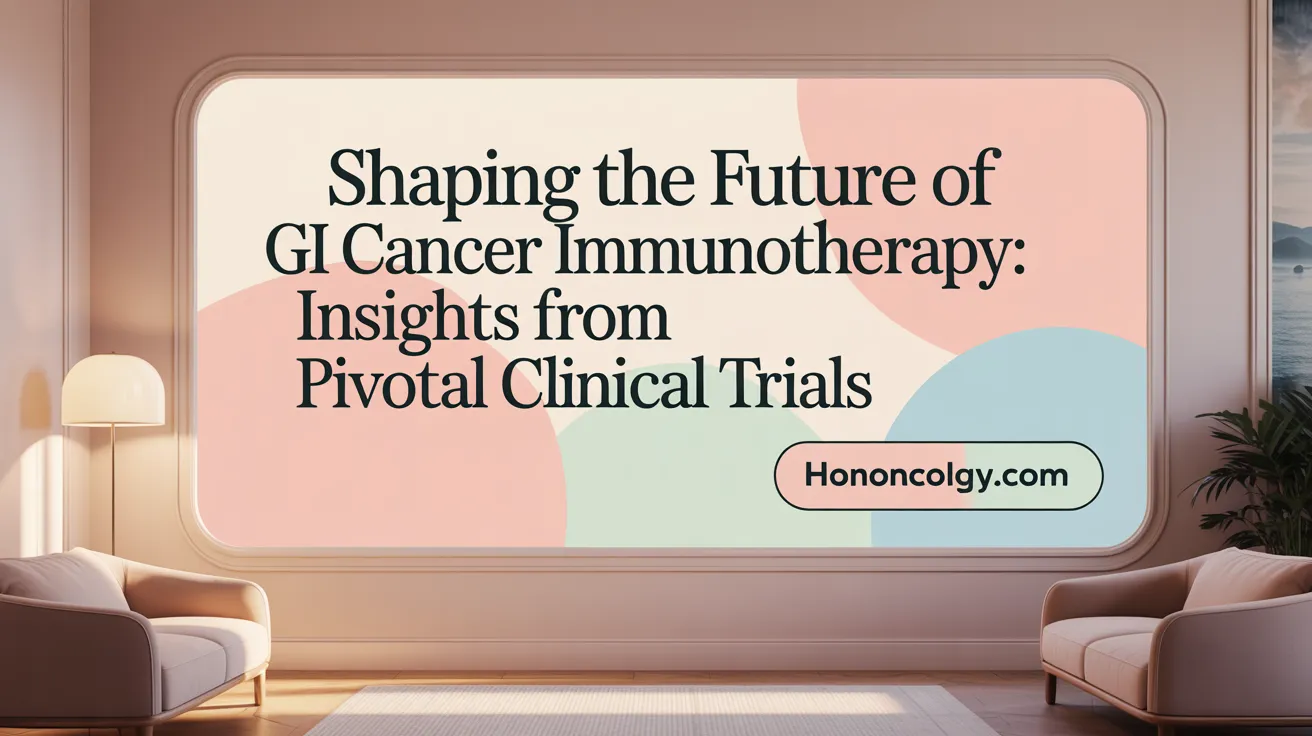
What clinical trials and approvals have reshaped immunotherapy use in gastrointestinal cancers?
Recent years have witnessed pivotal clinical trials that have fundamentally changed the incorporation of immunotherapy in treating gastrointestinal (GI) cancers. Among these, the CheckMate-649 trial evaluated nivolumab combined with chemotherapy in advanced gastric, gastroesophageal junction (GEJ), and esophageal adenocarcinomas, demonstrating significant improvements in overall survival and progression-free survival compared to chemotherapy alone. This outcome supported regulatory approvals and established nivolumab plus chemotherapy as a standard first-line treatment.
The KEYNOTE-811 trial introduced a combination of pembrolizumab with trastuzumab and chemotherapy for HER2-positive gastric and GEJ cancers, showing notably higher objective response rates and improving survival outcomes. This led to U.S. FDA approval and guideline shifts for this subset of patients.
For esophageal cancers, the MATTERHORN Phase 3 trial explored perioperative durvalumab added to chemotherapy, resulting in increased event-free survival without added toxicity, potentially influencing future standards.
In biliary tract cancers, the TOPAZ-1 trial reported that durvalumab combined with gemcitabine and cisplatin significantly improved overall survival and progression-free survival over chemotherapy alone, marking a breakthrough in a challenging tumor type.
Impact on treatment standards and ongoing research
These landmark trials have driven the FDA to approve immune checkpoint inhibitors (ICIs) such as nivolumab, pembrolizumab, and durvalumab for specific GI cancers, redefining treatment algorithms especially for unresectable, metastatic, or perioperative settings.
Clinical guidelines now recommend routine biomarker testing (e.g., HER2, PD-L1, MSI status) to tailor immunotherapy incorporation in GI malignancies (biomarker identification. Immunotherapy, often in combination with chemotherapy or targeted agents, is increasingly the backbone of care (combination immunotherapy and chemotherapy.
Ongoing research focuses on expanding immunotherapy benefits by investigating newer checkpoint targets (like LAG-3, TIGIT), novel combinations with targeted therapies or anti-angiogenics, and adoptive cell therapies such as CAR-T. There is also a drive to overcome resistance mechanisms and to extend efficacy to histologies traditionally less responsive to ICIs, such as microsatellite stable colorectal and pancreatic cancers (challenges in cancer immunotherapy.
These continuous efforts aim to enhance survival, minimize toxicity, and personalize immunotherapy regimens across the diverse spectrum of GI cancers.
The Tumor Microenvironment and Its Impact on Immunotherapy Efficacy
How does the tumor microenvironment influence immunotherapy outcomes in GI cancers?
The tumor microenvironment (TME) is a complex ecosystem surrounding gastrointestinal (GI) cancers. It includes various cellular and non-cellular components such as immune cells (tumor-infiltrating lymphocytes (TILs), tumor-associated macrophages (TAMs), cancer-associated fibroblasts (CAFs) in GI tumors, endothelial cells, and numerous cytokines that collectively impact tumor progression and immune interactions.
Tumors are often classified into two immunophenotypes based on their immune cell infiltration: 'hot' and 'cold.' 'Hot' tumors exhibit robust immune cell presence and active immune responses, which translate to better outcomes with immunotherapy. Conversely, 'cold' tumors, like diffuse gastric cancer, are characterized by a lack of immune infiltration and immune exclusion, often due to immunosuppressive factors within the TME (Cold tumors and checkpoint inhibitors, Immunotherapy in diffuse gastric cancer.
A major contributor to immune resistance in 'cold' tumors is the signaling of transforming growth factor-beta (TGF-β). High TGF-β levels promote the activation of CAFs and the formation of a dense, fibrotic stroma. This physical barrier not only limits immune cell penetration but also supports tumor growth and immune evasion (Cold tumors and checkpoint inhibitors, Immunotherapy for diffuse gastric cancer.
To improve immunotherapy efficacy, strategies focus on reprogramming the TME to become more immunogenic. Approaches under investigation include:
- TGF-β blockade to dismantle the fibrotic barrier and enhance lymphocyte infiltration.
- Promotion of immunogenic cancer cell death (ICD) to stimulate immune system activation.
- Modulation of stromal components to facilitate immune cell trafficking.
- Patient stratification using biomarker identification to tailor immunotherapeutic interventions (Predictive biomarkers for immunotherapy efficacy.
These efforts aim to convert 'cold' tumors into 'hot' ones, enhancing therapeutic responses and overcoming resistance mechanisms in GI cancers.
Emerging Immune Checkpoints and Novel Targets Beyond PD-1/PD-L1
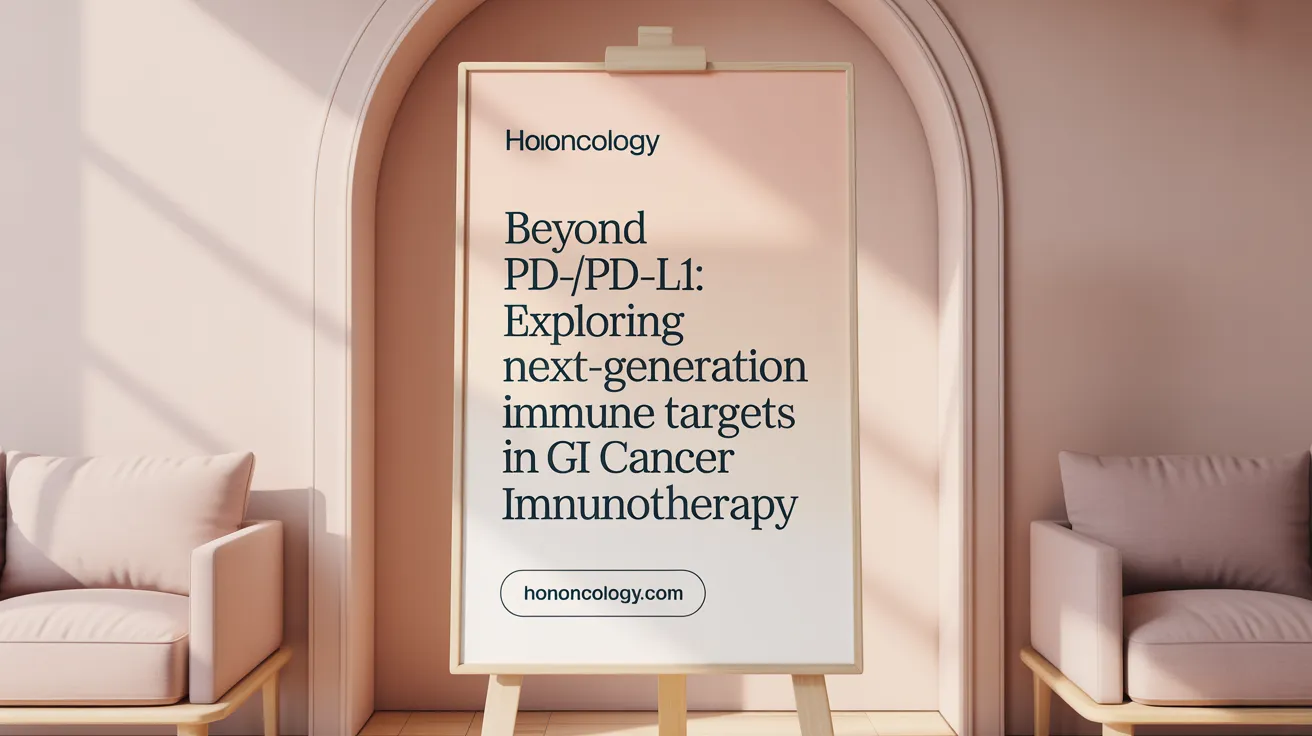
What new immune checkpoints and targets are being explored to advance GI cancer immunotherapy?
While PD-1/PD-L1 and CTLA-4 immune checkpoint inhibitors (ICIs) have transformed treatment for certain gastrointestinal (GI) cancers, novel immune checkpoints like LAG-3 inhibitors, TIGIT, TIM-3, and CD47 are gaining attention as promising therapeutic targets.
Preclinical and early clinical trials are investigating these new checkpoints to address the persistent problem of resistance seen in many GI tumors, especially those that are microsatellite stable (MSS) or proficient mismatch repair (pMMR). For example, Fc-enhanced anti–CTLA-4 antibodies combined with anti–PD-1 therapies have demonstrated encouraging response rates and disease control in MSS metastatic colorectal cancer, a subtype traditionally less responsive to standard ICIs (Next-Generation Immuno-Oncology in GI Cancers.
These emerging targets work by modulating additional inhibitory pathways that tumors exploit to evade immune detection. Targeting LAG-3 and TIGIT may restore T-cell function and overcome immune exhaustion, while blocking CD47 disrupts the tumor's "don't eat me" signal, enhancing macrophage-mediated tumor clearance (Immunotherapy in gastrointestinal cancers.
Potential for combination therapies addressing resistance
Combining inhibitors of these novel checkpoints with established ICIs or other treatment modalities holds potential to broaden the population of GI cancer patients who benefit from immunotherapy. This multipronged strategy aims to counteract multiple immune evasion mechanisms simultaneously, thereby increasing antitumor efficacy (Next-Generation Immuno-Oncology in GI Cancers.
Ongoing trials are evaluating safety and effectiveness of such combination regimens, which may also include targeted therapies or chemotherapy, to overcome the immunosuppressive tumor microenvironment characteristic of many GI cancers (Current immunotherapy approaches for GI cancers).
In summary, expanding focus beyond PD-1/PD-L1 and CTLA-4 to include LAG-3, TIGIT, TIM-3, and CD47 could revolutionize immunotherapy for GI cancers by overcoming resistance and improving clinical outcomes (Immunotherapy in gastrointestinal cancers.
Integrating Microbiome Research into GI Cancer Immunotherapy
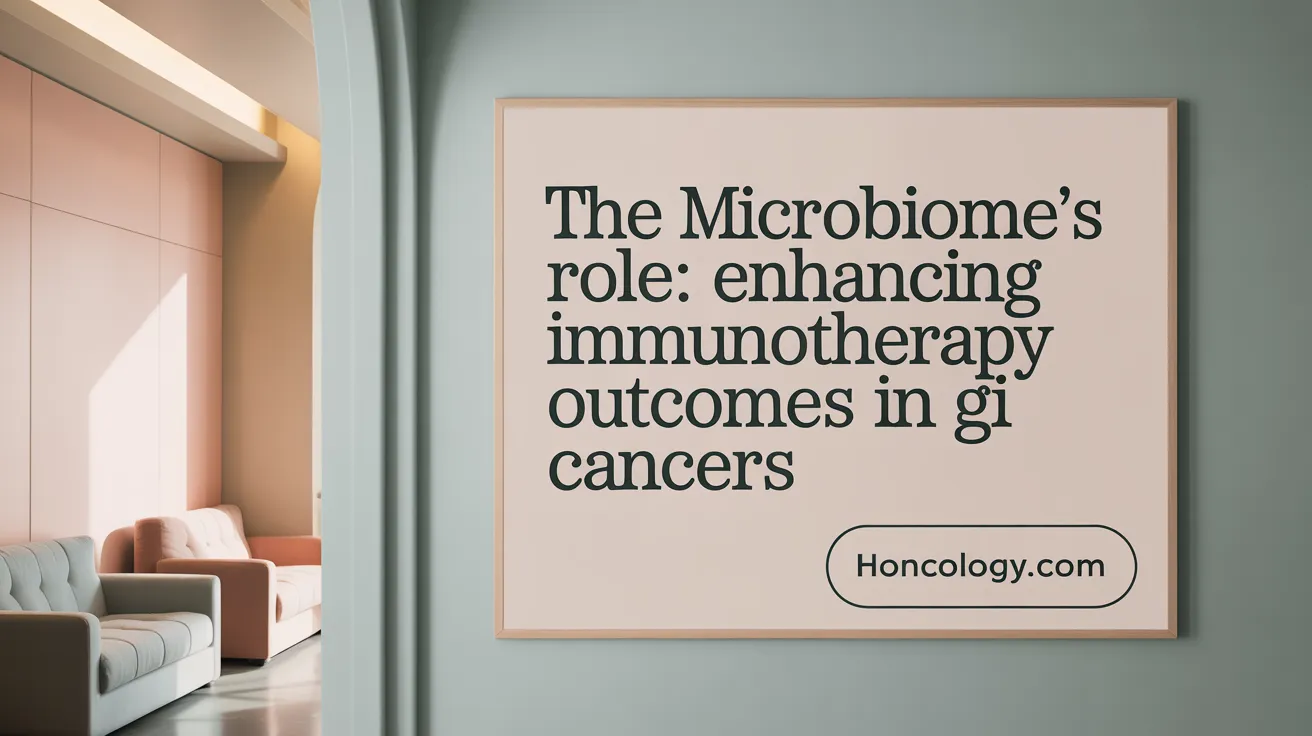
What role does the microbiome play in gastrointestinal cancer immunotherapy outcomes?
The gut microbiome has a profound impact on gastrointestinal (GI) cancer development and how patients respond to immunotherapy. Certain bacterial populations can either promote tumor growth or improve immune system recognition of cancer cells. For instance, Helicobacter pylori infection is a primary risk factor for gastric cancer by causing chronic inflammation and activating pathways that lead to uncontrolled cell proliferation.
Influence of gut microbiota on tumorigenesis and immune responses
Alterations in the gut microbiota composition can drive tumorigenesis through DNA damage, metabolic changes, and suppression of anti-tumor immune responses. Some bacteria, such as Fusobacterium nucleatum in colorectal cancer, encourage immune evasion, while others may enhance immune cell infiltration within tumors, affecting their 'hot' or 'cold' immune status.
Impact on immunotherapy efficacy and resistance
The efficacy of immune checkpoint inhibitors is modulated by specific microbial species. For example, Bacteroides thetaiotaomicron has been linked to better responses to anti-CTLA-4 therapy. Conversely, dysbiosis or the presence of certain bacteria can promote resistance to immunotherapy by creating an immunosuppressive tumor microenvironment.
Microbiome modulation strategies including probiotics and fecal transplantation
Clinical strategies to manipulate the microbiome aim to improve immunotherapy effectiveness. Probiotic supplementation, antibiotic adjustments, and fecal microbiota transplantation are being investigated as means to restore a favorable gut bacterial balance, enhance immune responses, and mitigate toxicity associated with immunotherapeutic agents. Ongoing research continues to explore these approaches to personalize and optimize GI cancer treatment.12
Personalized Medicine and the Future of GI Cancer Immunotherapy
How is personalized medicine shaping the future of immunotherapy in GI cancers?
Personalized medicine is revolutionizing immunotherapy for gastrointestinal (GI) cancers by leveraging molecular profiling and advanced multi-omics technologies. These tools allow clinicians to uncover detailed tumor characteristics such as genetic mutations, protein expressions, and immune landscape features unique to each patient. This molecular insight informs the selection and design of immunotherapies that precisely target individual tumor biology (Precision oncology in GI cancers, Biomarker identification in immunotherapy.
Artificial intelligence (AI) and digital pathology have become pivotal in improving diagnostic accuracy and prognostic evaluation in GI cancers. AI-powered algorithms analyze large datasets and histopathological images to identify subtle tumor features and predict response to immunotherapy. This capability supports earlier detection and personalized treatment strategies (AI-assisted biomarker discovery.
Integration of advanced biomarkers, including circulating tumor DNA from liquid biopsies and immune-related molecular signatures, facilitates dynamic monitoring of tumor evolution and treatment efficacy. This ongoing assessment enables timely adjustments in immunotherapy regimens, optimizing outcomes and minimizing adverse effects (Dynamic monitoring of tumor microenvironment.
Achieving these advances requires close collaboration among clinicians, researchers, data scientists, and pharmaceutical developers. Multidisciplinary partnerships and cross-sector engagement accelerate innovative drug development, improve clinical trial designs, and foster the rapid translation of personalized approaches into routine care (Multidisciplinary management of GI cancers, Industry and academia collaboration in drug development).
Collectively, these strategies promise to increase immunotherapy effectiveness, reduce toxicity, and ultimately provide better survival and quality of life for patients with GI cancers (Advances in GI cancer immunotherapy, Challenges in cancer immunotherapy.
Immunotherapy: A New Beacon of Hope for Difficult Gastrointestinal Cancers
Recent Advances in Immunotherapy for Gastrointestinal Cancers
Immunotherapy has rapidly transformed the treatment landscape of gastrointestinal (GI) cancers, including gastric, colorectal, esophageal, and hepatocellular carcinoma. Immune checkpoint inhibitors (ICIs) like pembrolizumab, nivolumab, and atezolizumab have shown notable efficacy, especially in tumors characterized by high microsatellite instability (MSI-H) or mismatch repair deficiency (dMMR).
Combination regimens integrating ICIs with chemotherapy or targeted drugs (such as anti-HER2 or anti-VEGF agents) have improved overall survival and progression-free survival, marking significant clinical progress. Additionally, adoptive cell therapies—like CAR-T cells targeting antigens such as claudin18.2—and oncolytic viruses are emerging modalities with encouraging preliminary outcomes.
Challenges and the Need for Continued Research
Despite these advances, challenges remain. Tumor heterogeneity, immune evasion mechanisms, and the immunosuppressive tumor microenvironment limit response rates, particularly for diffuse gastric cancer or microsatellite stable colorectal cancers. Toxicity management, biomarker development for patient selection, and the high costs of novel therapies underscore ongoing research priorities.
The Promise of Personalized and Combination Approaches
Personalized immunotherapy strategies, leveraging molecular profiling and biomarker-guided treatments, hold great promise. Combination therapies—blending ICIs with chemotherapy, targeted agents, vaccines, or novel cell therapies—aim to enhance efficacy and overcome resistance. Advances in neoantigen vaccines, bispecific antibodies, and immune checkpoint targets beyond PD-1/PD-L1, such as LAG-3 and TIGIT, illustrate the expanding arsenal of immunotherapeutic tools.
Emphasizing Compassionate, Multidisciplinary Care
The complex nature of GI cancers requires comprehensive, multidisciplinary management. Integrating oncologists, surgeons, pathologists, and supportive care experts ensures individualized treatment plans and addresses patients’ physical and emotional needs. Compassionate care alongside cutting-edge immunotherapies provides hope for improved survival and quality of life in these challenging diseases.





.png)


.png)
.png)


